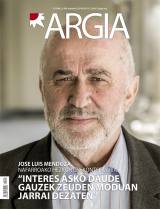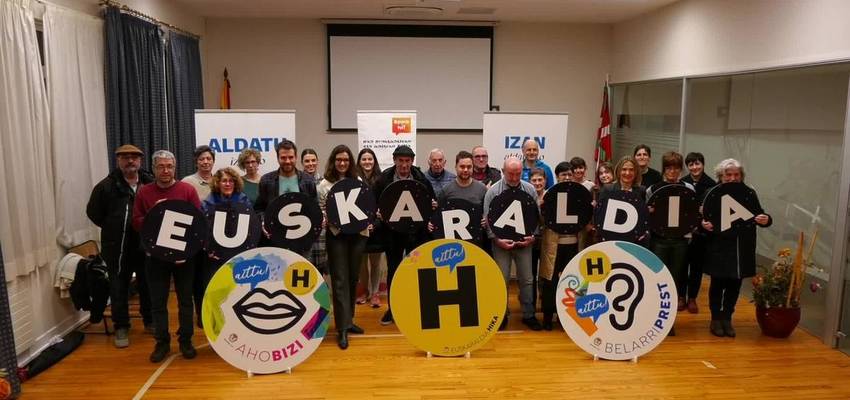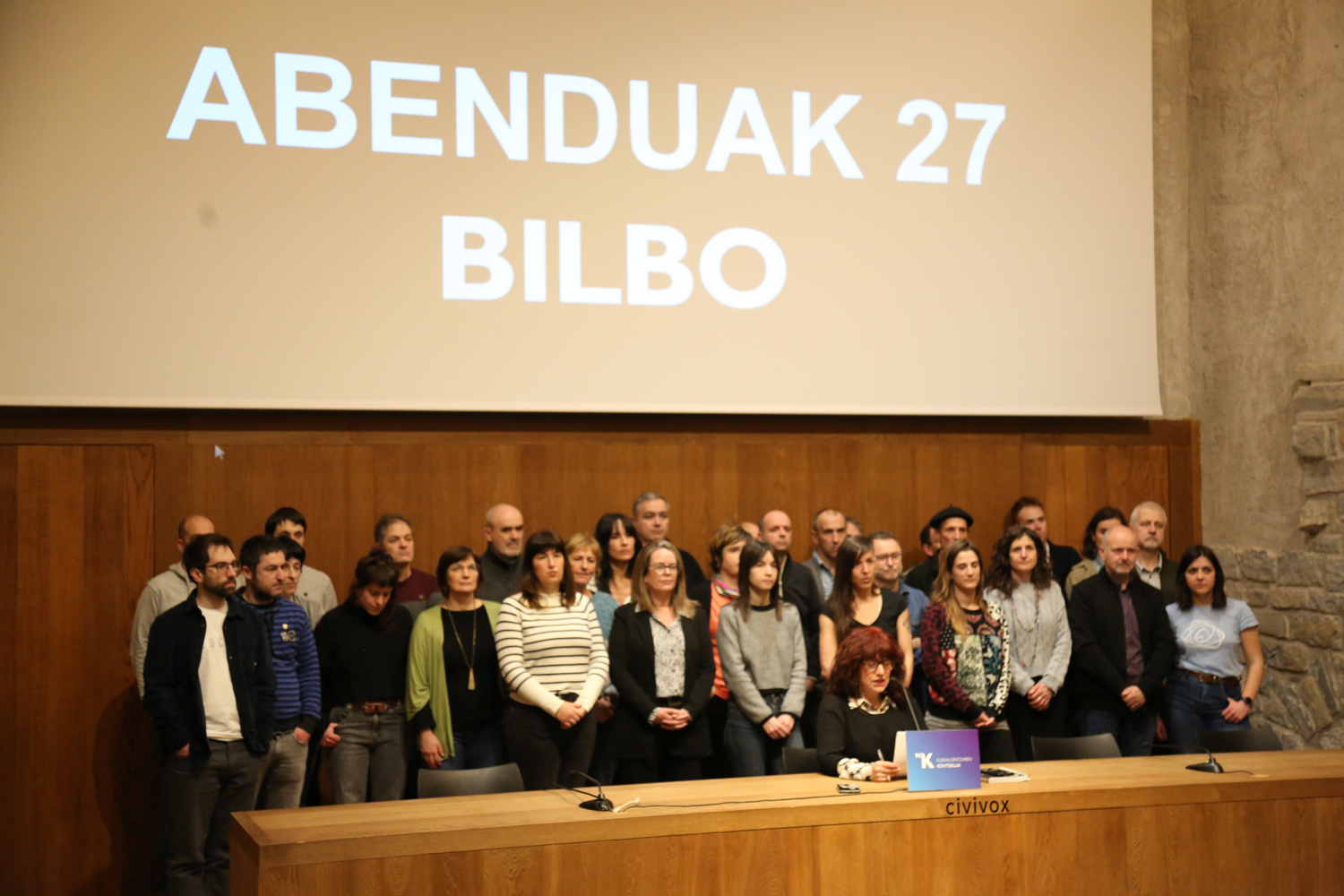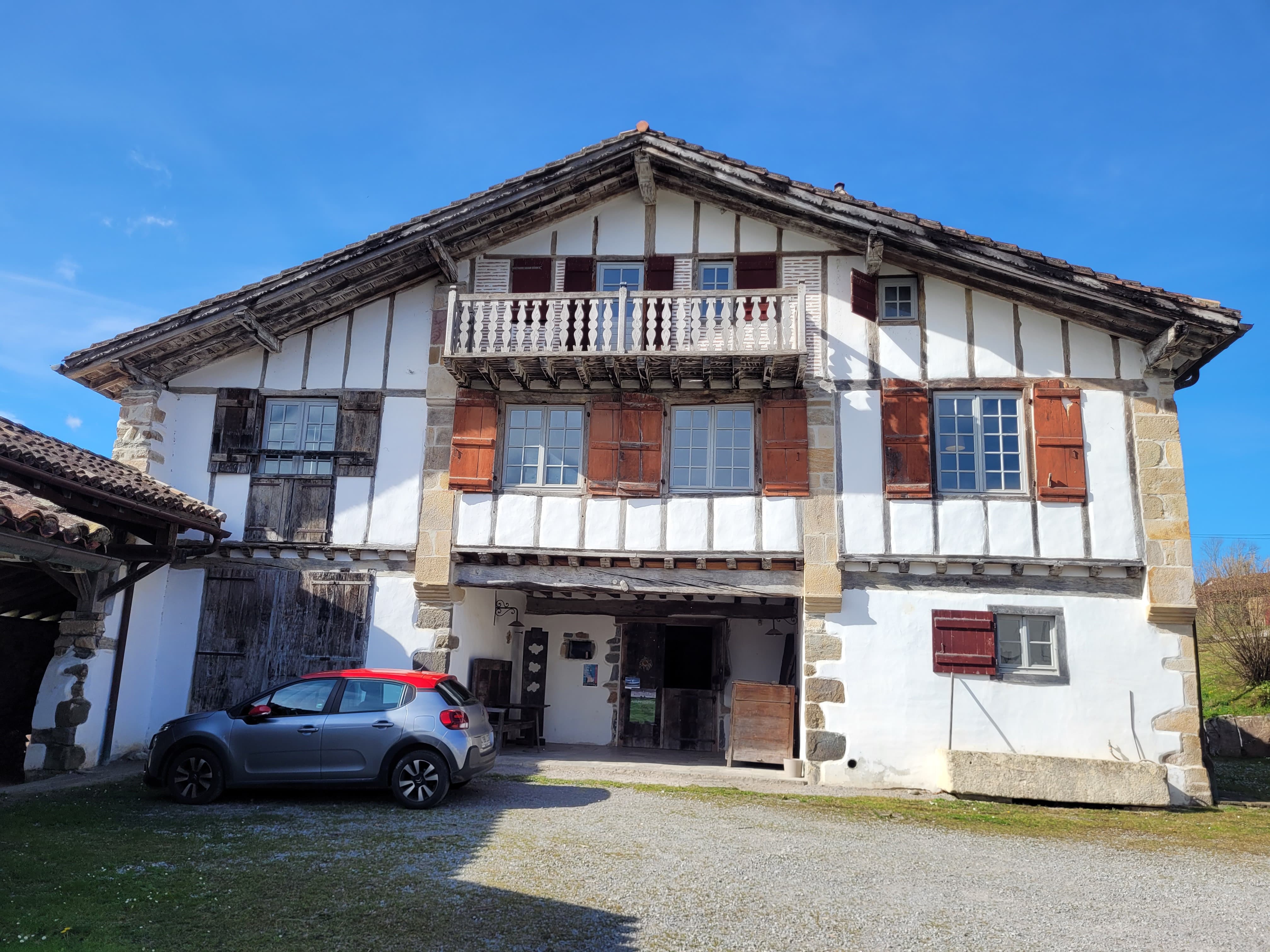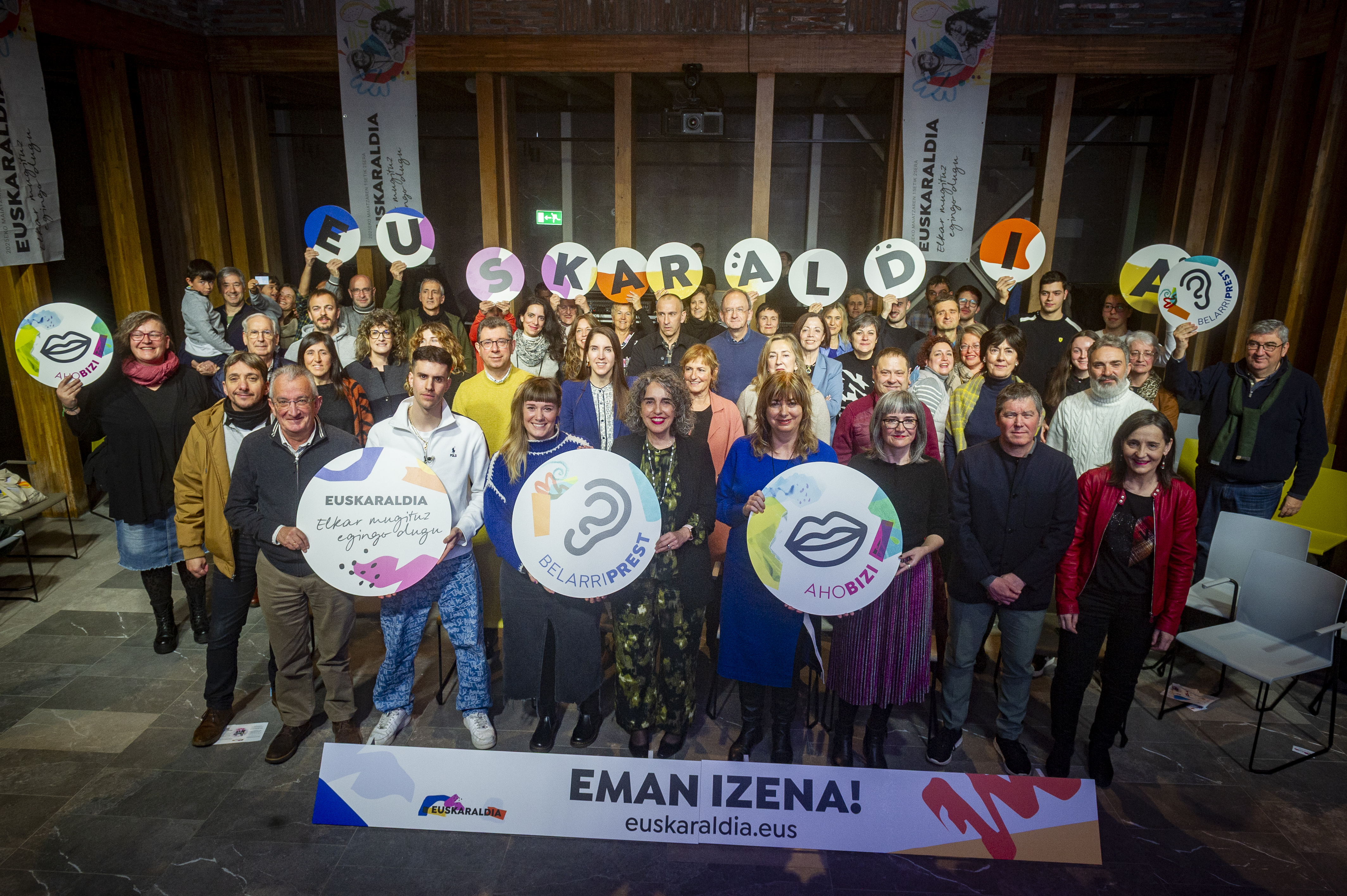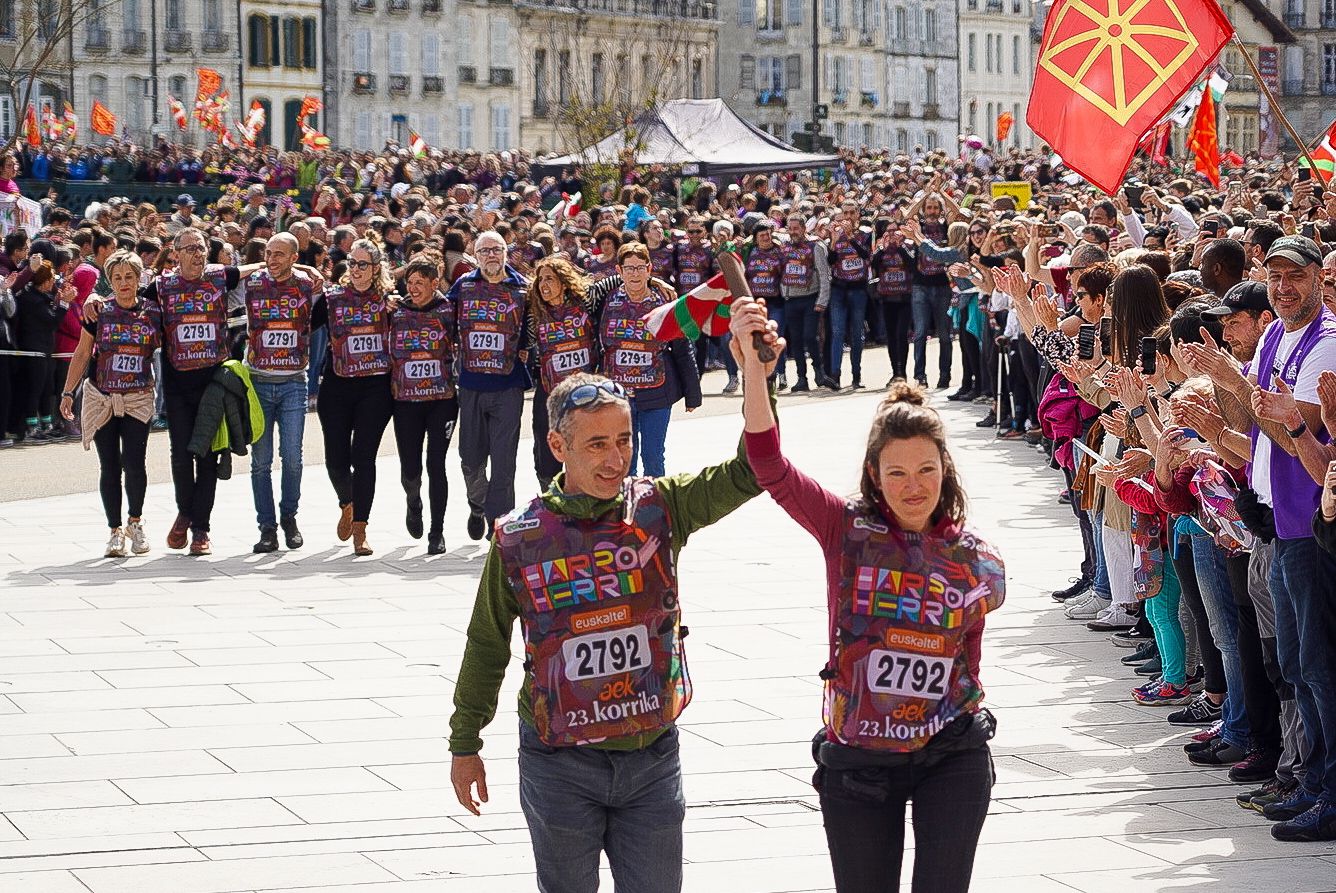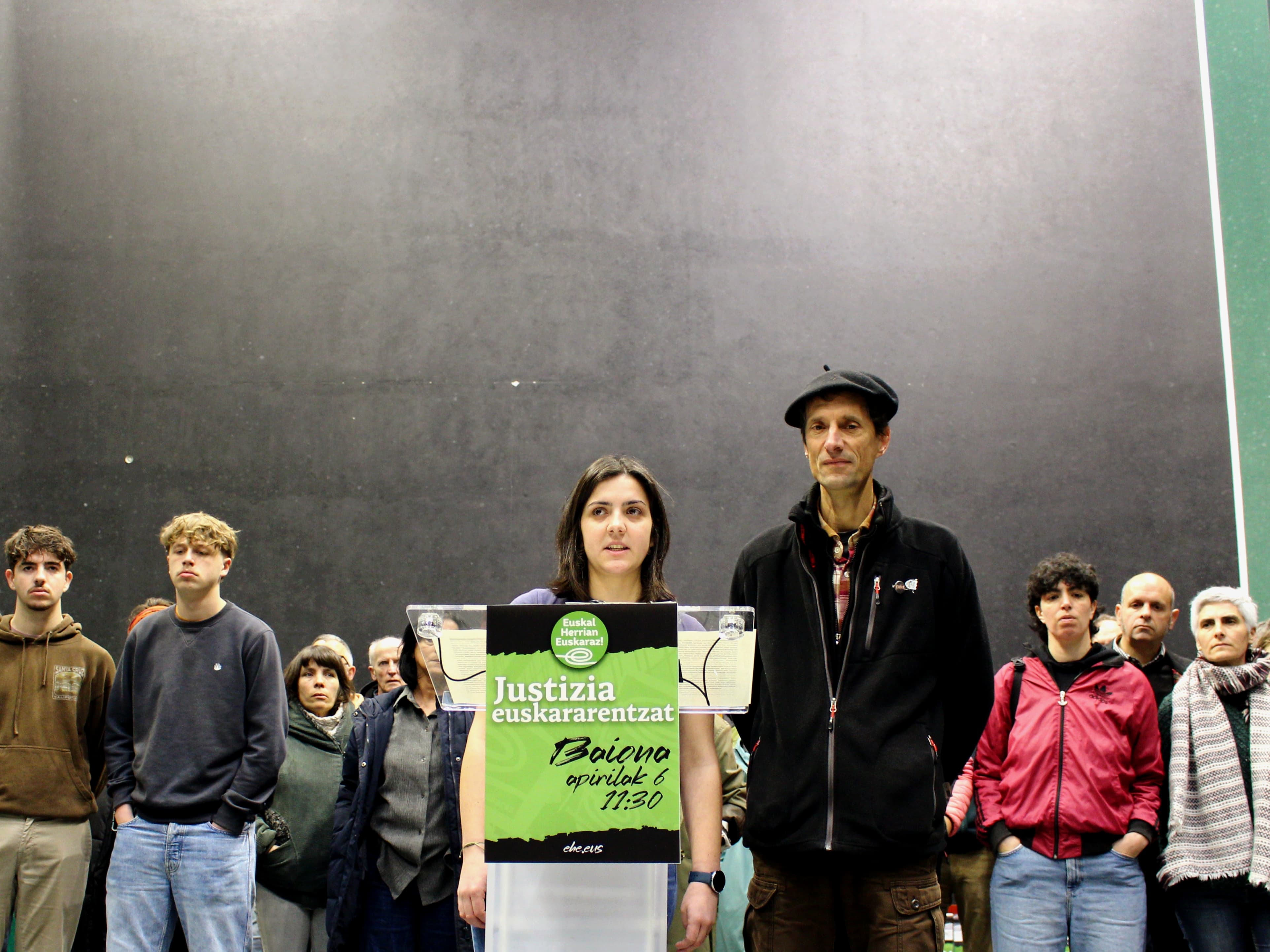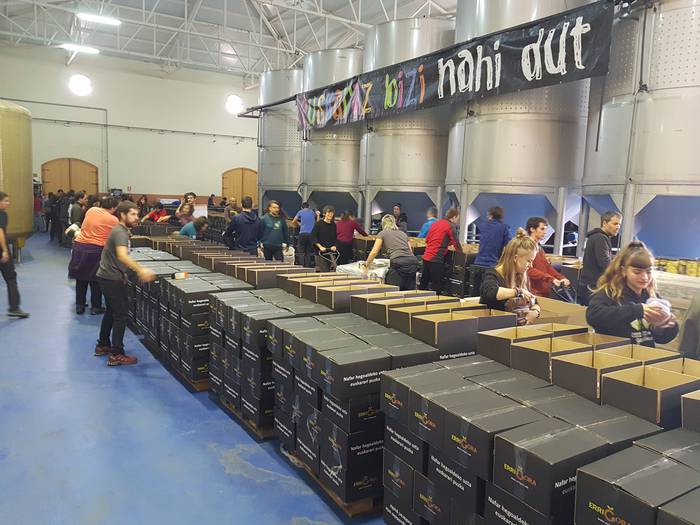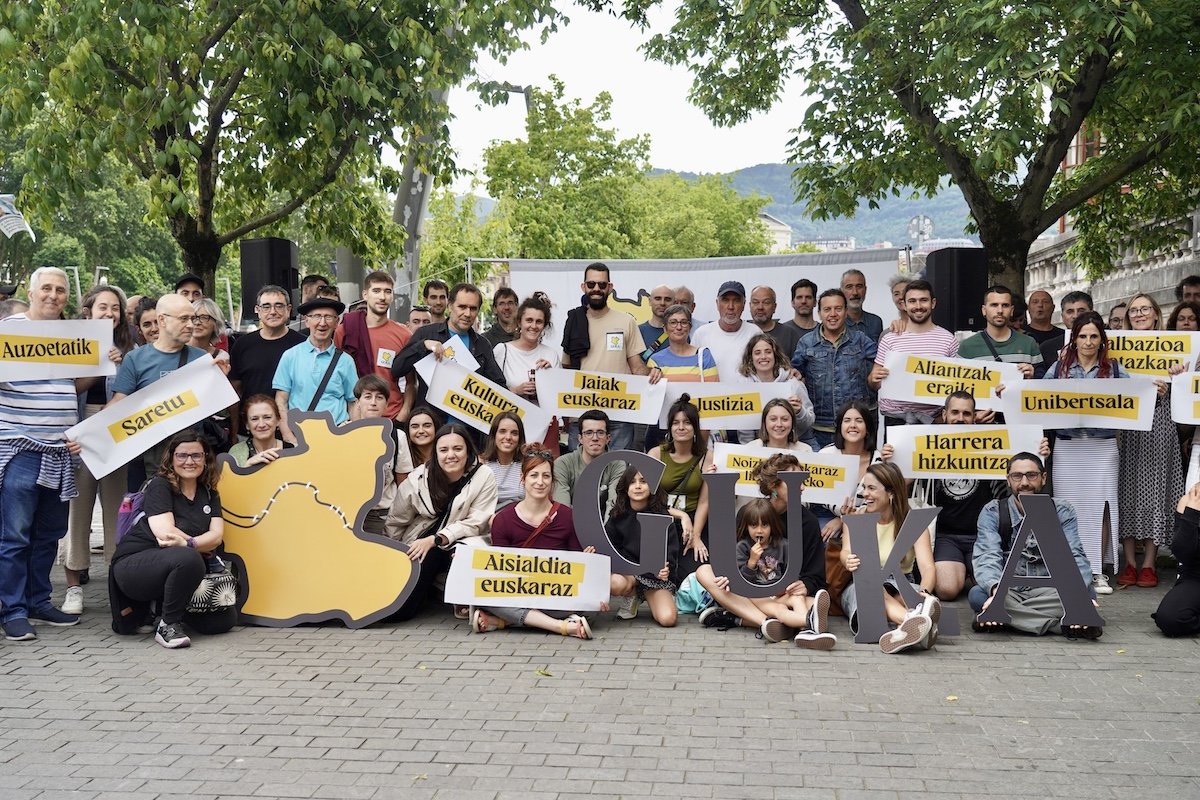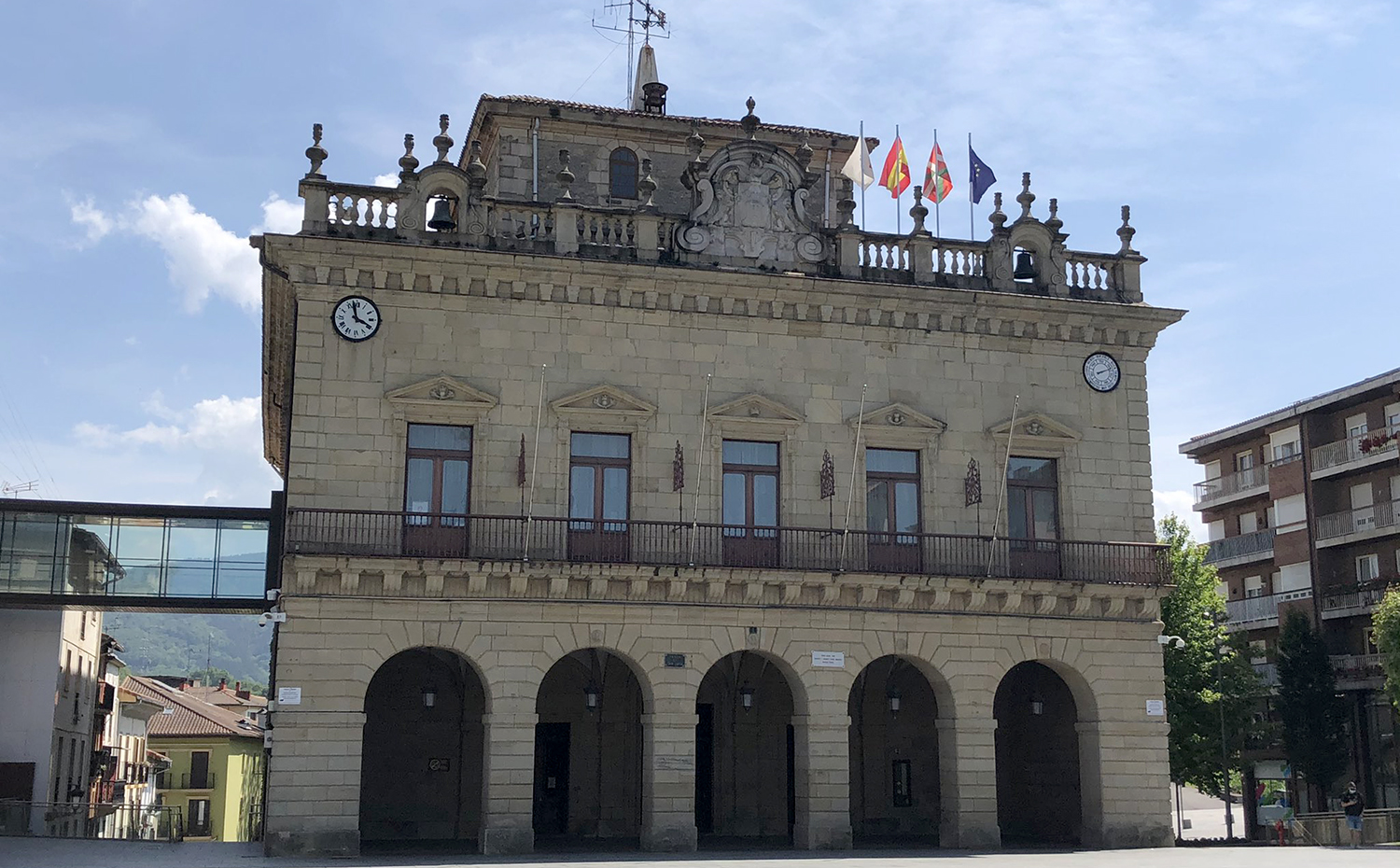"As much as the decision has been explained, in this community we have a lot of prejudices."
- The Minister of Education of Navarra received a hot potato: The Public Job Offer, model D, the English Learning Program, the LOMCE… Euskera and education have become spaces of confrontation in Navarre, and has caught José Luis Mendoza in the center (Carcar, 1954), criticized by the opposition, government members, unions and various educational agents. We have come to him to explain the situation.
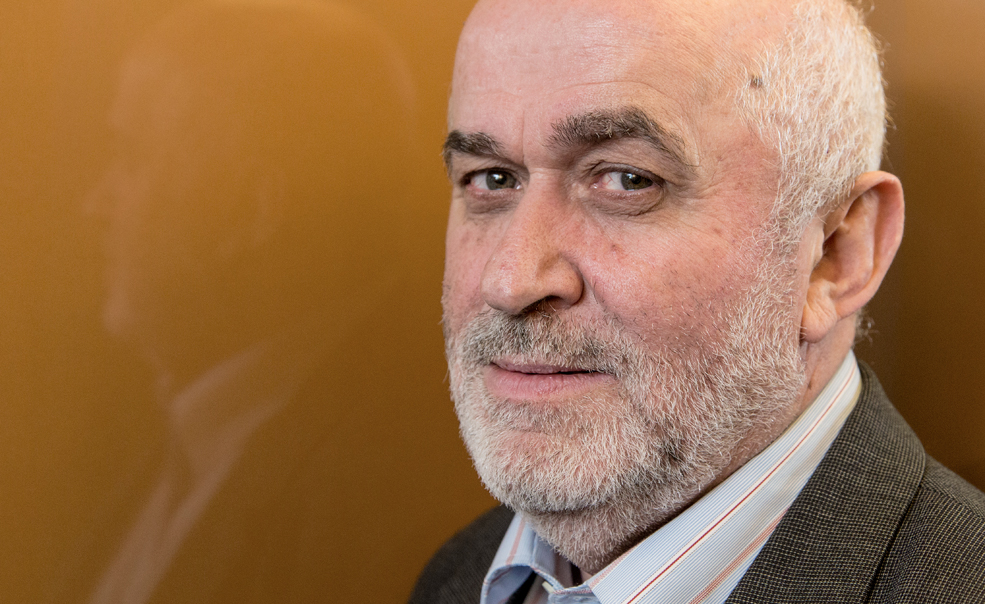
Pre-registration data have been published for the next course. In the non-vascophony zone in which model D is to be implemented in public schools for the first time, various groups and parents have denounced the lack of information. Has the government been lacking in a campaign or strategy to drive Model D forward?
Our duty is to campaign in favour of the public model, that has been our axis. In addition, we sent a letter explaining the possibility of registering in model D to the parents of the non-vascophony zone. We've also put information on our website, we've sent it to the centers and we've been tracking it in the schools. We have always said: in the event of any irregularity, report, there are inspectors in the centres and if not, contact the Department of Education directly, we have only received one complaint for lack of information. We have heard or read that some parents have complained about the same, and it is true that it happens, go to school, say that you want to enroll the child in a model, and receive “here we don’t have that model” as the only answer, but it is your obligation to denounce it. And beyond the rumours, we have not expressly received any more complaints. However, it should be borne in mind that we already anticipated that there might be a lack of information or misinformation in relation to the pre-registration campaign, we will carry out the actual registration in June, in September the last registration can be made, and we think that in that period some parents may rethink or change their mind. If there really are problems, we are in time to solve them.
Compared to those who say that in the non-Vascophony zone few girls and boys have been registered in model D, our assessment is different: our task has been to guarantee for the first time in 30 years the offer and the same rights to all boys and girls in Navarra. Register 10 or 100, that guarantee is the most important thing for us.
“Register 10 or 100 in model D, the most important thing for us is that in Navarra the same offers are guaranteed to all boys and girls”
You say that until June, parents can rethink enrollment. Will you use it to promote model D?
We have to bet on all models and programs, claiming the public school, and we will remember the possibility of changing the tuition if you want.
You have applied a moratorium on the controversial English Learning Program PDI (PAI) established by the previous government, keeping it in the centers already underway, but you have the evaluation of the PDI underway: In what period will the evaluation be carried out and you will be supported in education to decide which language treatment?
Evaluation is the principle of a decision. We must know what we have, what is right and what is wrong. The internal evaluation has already been carried out and the data are very bad. The main conclusion is that parents want a program in English, but that the previous Department of Education organized it very badly, that it has many mistakes and that they put in place to paralyse model D, as Yolanda Barcina herself recognized. It is now up to us to propose a new programme in English for schools that do not have IDP for the next course.
And in the centers where there's PDI?
This year we have a moratorium, because this course could not be suspended, since everything was organized beforehand. We will now analyse the evaluation and make constructive decisions.
But do they have clear deadlines?
We said this in Parliament, it is our deadline for the entire term of office. That does not mean that the process or the moratorium lasts three years, but that within that period we will make adjustments, proposals, amendments… and if possible, we will agree an educational pact with all the political forces.
During the moratorium, will you take steps to address the deficiencies of the program in IDP centers?
Yes, of course, for the centers with PDI, despite continuing in this program, to do so with guarantees: they will have the help of the inspection and the technicians, we have already invested more in the training of teachers… We will detect and resolve deficiencies, we introduce improvements, we cannot leave the program adrift.
“In government parties, no one has questioned the basis of the Public Job Offer, but there are political intentions, addictions; I understand, it is a political game”
The Public Employment Offer (OPE) has been embroiled in controversy, since, after the first Madrid resource, it considerably reduced the number of places in Basque, and then, instead of making a single list – as in the other communities with two official languages of the State – two lists have been proposed: in Spanish and in Basque. Why two lists in Navarre?
To begin with, some say that here the only official language is Spanish, and the Basque coopecist in various fields. In other words, instead of a pedagogical debate, what matters most is the political debate. On the one hand, we have had to cut the supply, forced by the Madrid appeal. And on the subject of the list, from the very beginning we saw that the opinion of the unions was divided and there was no way to reach a consensus: The Education Sector Bureau has a majority of the Basque unions [in favour of a single list], but in the Teachers Committee the others [against a single list]. In addition, in Parliament UPN, pp, PSN and Left-Ezkerra already expressed their intention to bring a law against the joint list. We thought that we had to resolve this conflict, first by agreeing a unitary opinion within the four parties of the government, and that with the threat above it was not worth following, because this government always tries to have two guarantees: the legal guarantee, so that no one opposes you and can carry out what has been decided, and the economic guarantee. We did not even have political guarantees, as there was a risk that the decision would be suspended by a law against which the majority had emerged.
It should be noted that in the oppositions it has been ensured that anyone can participate in the lists both in Basque and in Spanish, as the examination has taken place in two different days.
Has the OPE been conditioned by opposition pressure and discrepancies within the Government? Do you think that Left-Ezkerra has been unfaithful and weakened the Government?
The four parties in the government have a programme agreement and a basic philosophy, and at the end of the agreements we see that we have no agreement. From there, everyone has their political position and defends their interests, and we return to the political discussion: nobody has called into question the principles of the Public Employment Offer, but there are political intentions, the addictions – we know that there are political parties with specific unions – and all this I regard as normal and I understand it is a political game. I hope that some issues of political conflict will emerge, but I know that it is impossible. In these decades in Navarre we have seen that those who have won have done almost what they want, but we are in a new political time, in which the policies of the government and of general policy must be agreed between the four parties, I value it positively.
The Department of Education is accused of lack of explanations, forecasts and approaches. Has there been improvisation and uncertainty in management?
From the department you can always do things better, in any area, but even though the decisions are manifested a thousand times, I think in this community we have a lot of prejudices. The technical proposal becomes a political proposal that expresses the will of a Government and the context and conditions of the Government. We thought it would be possible to defend the Public Offer as we proposed it, but we saw what debates it had aroused between the four parties, and that we had two almost irremediable axes: whether or not to maintain the public offer as we had proposed it, and whether or not the list is joint. And if what happened had happened, surely if a year ago it had been said that in a public offer there would be more places in Basque than in Spanish, it would be amazing. But we have taken a step and the sky has not fallen.
But has the step been enough? In fact, different actors in the world of Basque culture believe that they have given way to political tensions.
It is not a surrender, it has been decisive that the State Attorney has removed 100 jobs from our list. If we go ahead and then the judge gives the State's lawyer the right to do so? Our hope is that these places will emerge later.
Asking the question in a different way: Is the discourse of “privilege” and “imposition” against the Basque opposition an internalized discourse in Navarre society? Is it costing you to tackle the linguistic policy of the years with forcefulness?
It's hard, but there's consensus among the four parties to deal with that. It is the duty of the Basque Country. What do we want to impose on Euskera? In the Government of Navarre the officials with training in Euskera do not reach 1%, and the data are extended by us, as in the Department of Education they are 8%. The Government agreement is committed to providing citizens with the service in the language they wish, as it is their right.
But is that message sent to the citizens or is it imposed?
One thing is the message and the other is the messenger. The current situation is a consequence of the division of powers that occurred in Navarre both in the Civil War and in the Transition, and has developed for 30 years. And the consequence is that there are a lot of interests, political and economic, so that things stay as they were. And the supports of those who have so far been in power, those who are against the current government, still have a huge media echo.
The parents of the schools of Sarriguren and Noain have asked for a distribution by linguistic models to guarantee the model of immersion and prevent the lines in Spanish from “eating”. In Spanish models, some have denounced that this is segregation. What is your attitude?
We have moved to the schools that the decision is ours, because we do not want to leave the potato hot, but we have told them that we want to take their criteria to decide, the direction, the cloister, the school board and the parents. We need to know what they want to make a decision.
Will you then do what most people want?
If there is an absolute majority, it will be easier for us to decide, but first we have to look at the numbers and the reasons: it is not the same to say that what you do is “submerge” or “segregate” yourself.
"I've asked the PSN to move the thing in Madrid to end the LOMCE. For the moment we are waiting”
The LOMCE has continued this course, as it was said that the repeal of the decrees of the previous government would lead to a "great stir". Will external end-of-course exams be conducted in the 3rd and 6th grades?
They will be studies performed by ourselves, diagnostic evaluations, and they will also serve to evaluate, among others, the PDI. They will have the content that we decide and we will try to avoid LOMCE.
They left the LOMCE pending the Spanish elections, but the next course is getting closer and closer and there is no news of Madrid at the moment. Are you going to keep the decrees for the next year?
We have two options: Let Madrid suspend the LOMCE, and if it does not leave, what position we will take. It is curious that the PSN has had it from the very beginning, to see when we are going to deal with the LOMCE, and I have asked them that they now have the opportunity to end the LOMCE in Madrid, which is in their hands and please move the thing, so that the LOMCE is suspended. We're on hold.
What if they don't move in Madrid?
We will have to make decisions. But for the moment we are waiting.
What is the infrastructure plan?
The problem is the economic situation, that of Navarre Arena, Los Arcos and where the money has been spent because the previous government and the courts have given the right to the teachers and we have to pay EUR 11 million. We have over 40 buildings for construction or reform, and with the small budget we have we will do what we can. We have given priority to the schools in Sarriguren, Buztintxuri and Castejón. We also have other smaller works in progress…
The previous government made cuts: it increased student ratios per classroom and increased the number of teaching hours to teachers.
The ratios will return to the previous values from the next course and the teaching hours, depending on the budget, but the intention is to return to the first in this legislature. But that's all a big economic investment, and you need coins. Let us see if we get more money with tax reform.
Is the funding of the Public University of Navarra (UPNA) strengthened and strengthened?
The opposition has said that we have frozen the UPNA budget, but it is a lie, because although the nominal budget is the same as the previous one, we have extended other items: scholarships, training, doctorate, postgraduate… And they also have at their disposal the EUR 2 million that did not spend the last course to do good management, has not been taken over by the government. On the other hand, we are now beginning negotiations to define the broad outlines of the multiannual plan.
English extends faster in UPNA subjects than Euskera (according to the latest data, 60% of the subjects are taught in Spanish, 20% in Basque and 18% in English). What is the Government's language policy at public university?
The UPNA has its own language policy, as it has autonomy to do so. Although we respect this autonomy, we do not want the university to be an island in the educational system, and we will try to reach an agreement on a linguistic policy that also takes into account the Basque language, so that students who want to continue learning Euskera – not only the Navarros, but also those who may come from the CAV or from Iparralde – can do so. In addition to the current picture of society, account should be taken of the direction that Navarre society is going to take in terms of language.
“From an economic point of view, OPUS is the second company in Navarre, and it should also be taken into account. We respect each other’s space”
With OPUS you will respect the pact signed by the previous government, as although there is a foral law that prohibits subsidizing centers that segregate by sex, LOMCE authorizes it. What relationship do you have with OPUS?
They are normal relations, not only from the Department of Education, but from the entire government. After all, they are the second economically located company in Navarre and that must also be taken into account. We respect each other's space.
Are subsidies maintained for concerted centres?
In principle, yes. The concerted offer a service to society, a public service with private resources, and we recognise that function, but the priority will always be public. For the next year we have to reorganize the school map and discuss, as they receive public money, what requests we can make to the concerted to balance the reception of immigrant students (83% of foreign students are welcomed by the public network) or guarantee objective criteria to access a teaching position and make replacements.
You put on the table the possibility of publishing the ikastolas, but they said no.
I was asked in an interview, “have you thought about publishing the ikastolas?” but we have not thought about that and the ikastolas have not asked us either, so there is nothing to say about this issue. As with the rest of the concerted, we have normal relations with the ikastolas.
He has suggested opposing the teachers of the concerted.
This is a proposal that may exist in the negotiations, insofar as they receive public money, but without more. That is what I would do to demonstrate transparency in the hiring of teachers, but that does not mean that recruitment at concerts is not transparent.
He has also referred to the need for an Education Act for Navarre, and until it is achieved, a transitional law is made agreed with as many political forces as possible.
It is precisely the PSN that has brought a proposal to this effect to Parliament, because Uxue Barkos, who is responsible for putting the medal, has long called for an educational pact. That would be good, because the most important thing is not the political sphere, but that of providing a good education for the whole of Navarre society.
Education is being the main objective of criticism in Navarre and Uxue Barkos has also participated on several occasions. Is it politically questioned or protected?
The aim has been education, whatever the counsellor, and the President, Uxue Barkos, has also made public statements on other issues that have been as complicated as education. After all, what I say is not my personal opinion, it is the government’s position, but yes, it is a hot ground and surely it will be. For the time being, I feel able to follow and as long as I have the support of the government I will continue, but I am willing to leave at any time; I am on a project and without being on the front line there are many other places to work, to develop the change in Navarra.

Bilbon eginiko aurkezpenean iragarri dute ekitaldia, euskarari "arnas berri bat emateko eta behar duen indarraldia gorpuzten hasteko" lehen urratsa izango dela nabarmenduta. Euskaltzale guztiei, baina, oro har, "justizia sozialean eta gizarte kohesioan aurre... [+]
Euskaraldiaren hamaikakoa aurkeztu dute Nafarroan: Julio Soto bertsolaria, Edurne Pena aktorea, Julen Goldarazena musikaria (Flakofonki), Claudia Rodriguez Goxuan Saltsan taldeko abeslaria, Eneko Garcia (Albina Stardust), Yasmine Khris Maansri itzultzaile eta kazetaria,... [+]
Euskalgintzak Senpereko Larraldea etxea faltan botako du. Uda gabe, Bertsularien lagunak, bertan gelditzen den azken elkarteak, lekuz aldatuko du eta etxea hetsiko dute. Euskararen, euskal kulturaren eta arteen ohantzea izan da Larraldea, urte luzetan Andoni Iturrioz mezenasak... [+]
Horra Libération egunkariak berriki argitaratu duen idazkia:
“Bayonne” bukatu da, Libérationek “Baiona” idatziko du
Hiri baten izenaren erabilpena ohiturazkoa delarik, egunkari batean izen horren erabilpena aldatzea zaila da. Alta, irakurleen... [+]
Gasteizen egin duten ekitaldian ireki dute izen ematea, laugarren edizioa hasteko bi hilabete falta direla. Erakundeetako ordezkariak, herritarrak eta entitateetako kideak agertu dira, besteak beste. Euskaraldiaren koordinazioa Euskal Herriko erakunde publikoen eta Taupa... [+]
Korrikaren "bihotza eta burua" erakutsiko ditu dokumentalak. Proiektua gauzatzeko, herritarren babesa "ezinbestekoa" izango dela adierazi dute AEK eta Mirokutana ekoiztetxeak, eta apirilaren 25era bitartean crowdfunding kanpaina bat abiatuko dute jalgihadi.eus... [+]
25 bat eragilek adierazi diete elkartasuna apirilaren 11n Baionako auzitegian epaituko dituzten Intza Gurrutxaga eta Gorka Torre Euskal Herrian Euskaraz taldeko kideei. Egun batzuk lehenago, apirilaren 6an Baionan eginen den manifestazioan parte hartzeko deia ere luzatu dute.
Martxoaren 10etik 26ra izango da udaberriko kanpaina. 'Beste modura, denona de onura' lelopean arituko dira gertuko ekoizpena, banaketa eta kontsumoa babestu eta sustatzeko, ager zonaldean euskara hauspotzen duten bitartean. Apirila amaieratik aurrera jasoko dira... [+]
Otsailaren 28an Hendaian eman dio hasiera kanpainari Herri Urratsek. Euskararen transmisioa bermatzen duen Seaska babestea da helburua.
Gukak “Bilbo erdalduntzen duen makina” ikusaraziko du kanpainaren bidez. 24 orduz martxan dagoen makina salatuko dute, eta berori “elikatu eta olioztatzen dutenek” ardurak hartzea eskatuko dute. Euskararen aldeko mekanismoak aktibatzea aldarrikatuko dute.
Hamahiru ZirHika kide batu dira hitanoaren erabilera aldarrikatzeko eta antolakundearen ekintzen berri emateko. Azalpenak Badihardugu elkarteko Idoia Etxeberria eta Galtzaundiko Uxoa Elustondok egin dituzte. Horiei, Andoni Egaña eta Amaia Agirre bertsolariak eta... [+]
Gabonetako argiak pizteko ekitaldia espainolez egin izanak, Irungo euskaldunak haserretzeaz harago, Aski Da! mugimendua abiatu zuen: herriko 40 elkarteren indarrak batuta, Irungo udal gobernuarekin bildu dira orain, alkatea eta Euskara zinegotzia tarteko, herriko eragileak... [+]









